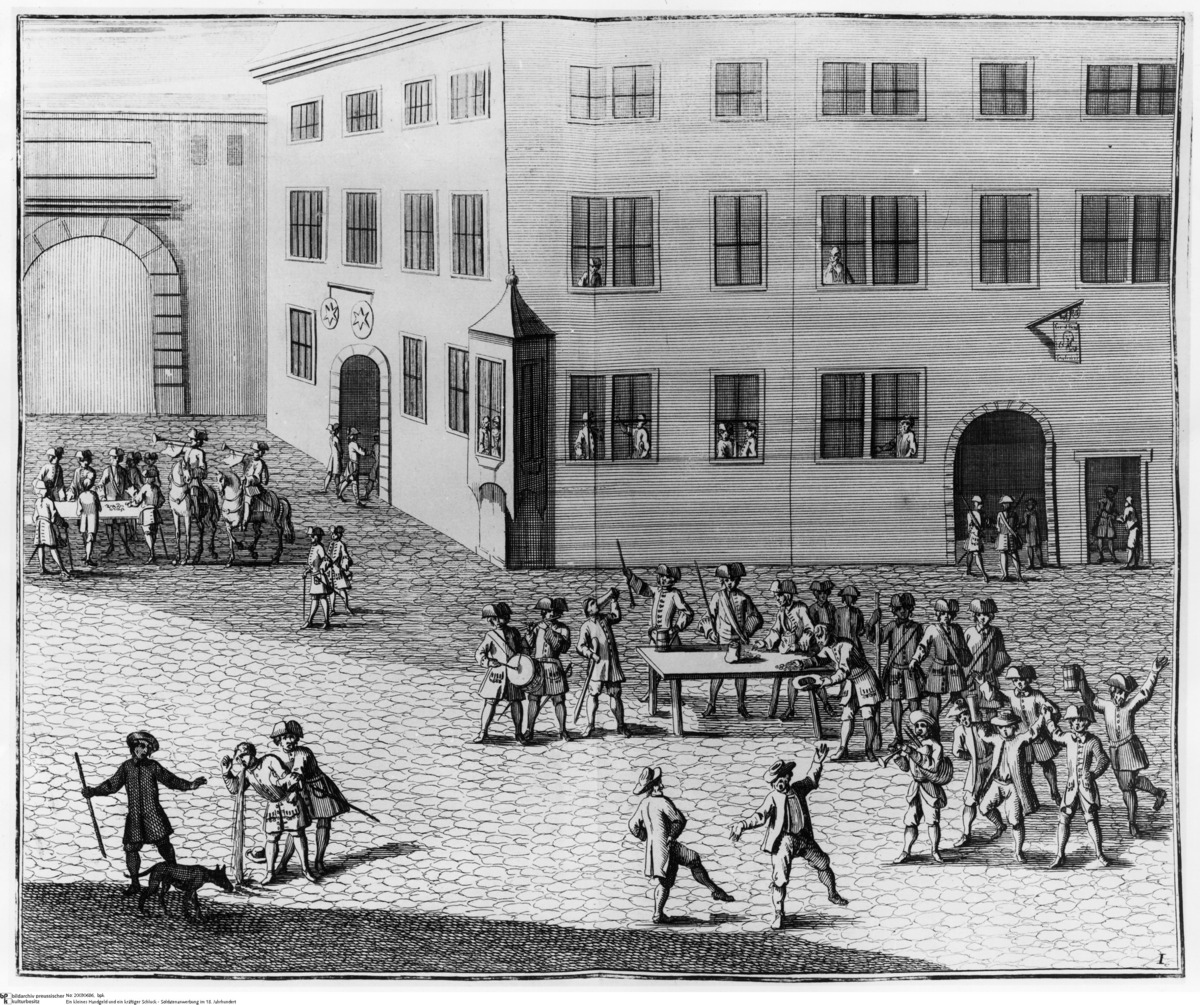Source

Source: bpk-Bildagentur, image number 20030686. For rights inquiries, please contact Art Resource at requests@artres.com (North America) or bpk-Bildagentur at kontakt@bpk-bildagentur.de (for all other countries).
The excesses committed by mercenary armies during the Thirty Years War (1618-48) strengthened the trend toward standing professional armies. So, too, did the need to deploy large numbers of troops in various conflicts with Louis XIV throughout the late seventeenth and early eighteenth centuries. Prior to the compulsory enlistment of able-bodied commoners – which became the standard after 1733 in the Prussian “canton system” – armies made use of incentives in the recruitment of volunteers. This practice persisted in some German states throughout the eighteenth century. The image below is from Hanns Friedrich von Flemming’s Der vollkommene teutsche Soldat [The Complete German Soldier] (1726). It shows how recruitment might have taken place in the early eighteenth century – with a little pocket change and a strong drink.

Source: bpk-Bildagentur, image number 20030686. For rights inquiries, please contact Art Resource at requests@artres.com (North America) or bpk-Bildagentur at kontakt@bpk-bildagentur.de (for all other countries).
bpk